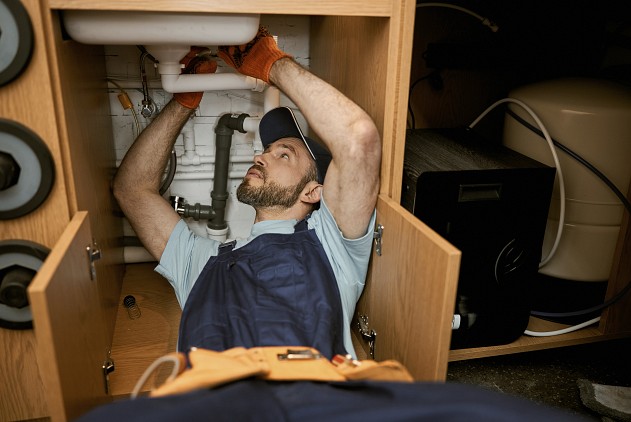Hiring a Handyman For Plumbing: What You Need to Know
When you hire a local handyman near you to help you with various tasks around the house and yard -- such as outdoor cleaning, light or fixture installation, or constructing a shed -- you might think of asking them to take care of your kitchen and bathroom plumbing problems as well. However, consider the following crucial factors before you go ahead.
Beware of Amateur Plumbing Work
Handymen in some states are prohibited by law from performing plumbing tasks -- other than minor jobs such as installing a new faucet fixture. The main reason for this prohibition is that an amateur, incorrect, or shoddy plumbing job by someone who is not a professional plumber can be disastrous for your home. A handyman, no matter how competent he or she may be at performing other chores, probably does not have the necessary training in dealing with plumbing blockages and other problems.
This could set you up for further damage to drains, appliances, flooring, and other things in your home that need proper plumbing in order to function correctly. And to make matters worse, your insurance might not cover the damage, since it was caused by an unlicensed worker. For major jobs, such as a bathroom remodel, a good handyman should either subcontract the plumbing work to a licensed master plumber, or leave it to you to find a plumbing professional who will pull permits, successfully install the necessary components in compliance with code, and make sure that everything works.
Plumber Licensing Requirements
Licensing is another very important difference between a handyman and a plumber. Plumbers must be licensed in 46 out of the 50 states (the exceptions are Kansas, Missouri, Nebraska, New York, Pennsylvania, and Wyoming). Requirements for working as a handyman tend to be less rigorous, although a few states, such as California, do require that self-employed handymen obtain a contractor’s license.
If you want to find out more about your area’s licensing policies for handymen, enter the name of your state and an appropriate term, such as “handyman license requirements,” into an internet search engine. Doing so should bring up the website of your state government’s licensing board (the site address will end in .gov).
Training and Apprenticeship
Handymen and “real” plumbers also tend to differ a great deal in their level of professional training and education. Master plumbers must pass a rigorous examination, after completing two years of vocational school training and/or a lengthy apprenticeship, which usually lasts at least four years. Since their licensing requirements change very often, many professional plumbers also attend continuing professional education as part of their career.
While some homeowners will want to save a bit of cash by having a handyman install or fix plumbing, the plumbing job may well end up costing you more money if you need to pay a professional plumber to fix shoddy work. In most cases, it is worth investing the extra money in the first place, to hire a reliable licensed plumber for plumbing installations and repair of significant plumbing problems. This helps to ensure that you will not end up going over your budget for a costly mistake.
Related Articles
Looking for a Pro? Call us (866) 441-6648

Handyman Average Costs
Handyman Services Experiences

I Needed To Install Shower Safety Rails After My Knee Surgery

Garage Storm Door Installation At A Good Price




